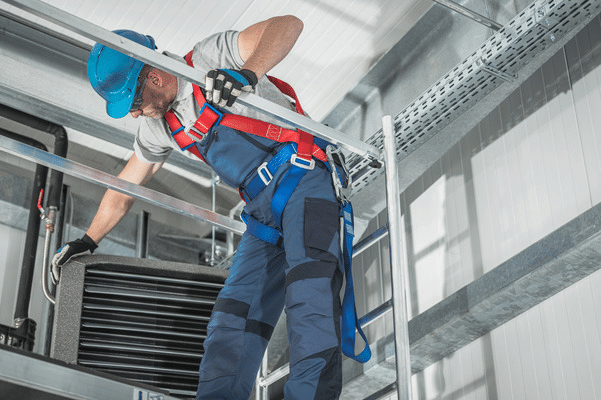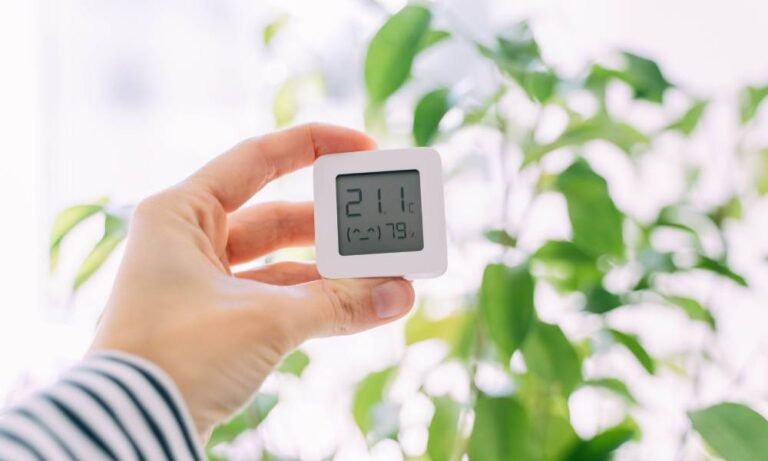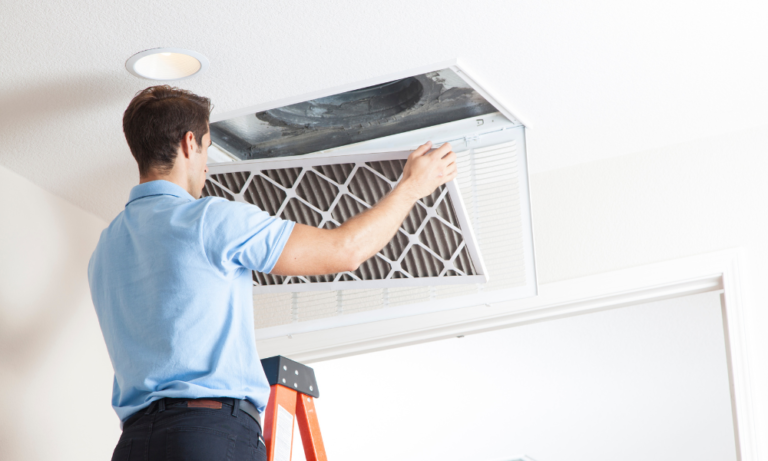Estimated reading time: 5 minutes
Finding the right HVAC system for your home is a critical decision. It directly impacts your comfort, energy bills, and even the environment. With so many options available, it can feel overwhelming, but it doesn’t have to be. I’ll guide you through the process with practical advice, helping you choose a heating and cooling system that meets your needs.
Here’s what we’ll cover:
- The main types of HVAC systems
- Key factors to consider before making a decision
- The importance of professional installation and maintenance
Let’s take the guesswork out of finding your ideal system.
1. Understanding Heating and Cooling Systems
Before you make any decisions, it’s helpful to understand the basics of HVAC systems. These systems regulate temperature and air quality in your home, keeping you comfortable year-round.
Common Types of Systems
There are four main types of systems, each with its own benefits:
- Split Systems
- The most popular option, consisting of separate heating and cooling units.
- Ideal for homes with existing ductwork.
- Suitable for areas with extreme seasonal weather.
- Ductless Systems
- Perfect for homes without ducts or for room-specific temperature control.
- Easy to install and energy-efficient.
- Packaged Units
- Compact systems that combine heating and cooling in one outdoor unit.
- Common in smaller homes or properties with limited indoor space.
- Geothermal Systems
- An eco-friendly option that uses the earth’s natural temperature to heat and cool your home.
- While costly upfront, these systems save money over time with lower energy bills.
Each of these systems offers unique advantages. Your choice will depend on your home’s layout, budget, and comfort priorities.
2. Factors to Consider When Choosing a System
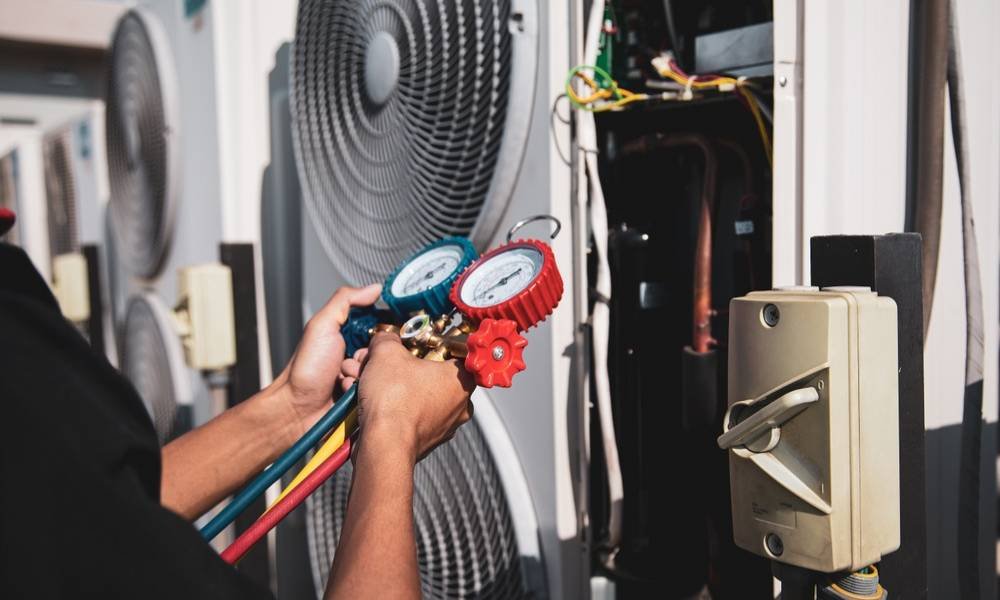
No two homes are the same, so selecting the right system involves evaluating several factors. Here’s what to keep in mind:
Size of Your Home
The size of your system needs to match your home’s square footage. A unit that’s too small will struggle to maintain the temperature, while an oversized one will waste energy by cycling on and off frequently. A professional load calculation ensures you get the right fit.
Energy Efficiency
Energy-efficient systems save you money and reduce your environmental impact. Look for systems with high SEER (cooling) or AFUE (heating) ratings. Energy Star-certified units are also a great choice. While they may cost more upfront, they pay off with lower monthly utility bills.
Tip: Energy efficiency doesn’t stop with the system—proper insulation and sealing also help reduce energy use.
Climate and Weather Conditions
Your location plays a big role in your decision.
- Cold climates: Gas furnaces or heat pumps with supplemental heating are ideal.
- Hot climates: High-efficiency air conditioners or geothermal systems work well.
For mild climates, ductless systems with heat pumps provide excellent year-round comfort.
Budget
Heating and cooling systems are an investment, so it’s important to balance upfront costs with long-term savings. On average:
- Ductless systems cost around $3,500 per unit.
- Traditional split systems cost $8,000 or more.
- Geothermal systems can exceed $14,500.
Factor in installation costs, potential rebates for energy-efficient systems, and your long-term utility savings.
Air Quality Features
If allergies or respiratory issues are a concern, prioritize systems with advanced filtration, humidifiers, or air purifiers. These features help remove allergens, dust, and excess moisture, improving your home’s overall air quality.
Existing Infrastructure
If your home already has ductwork, sticking with a split system can save money. Homes without ducts may find ductless systems more cost-effective, as they avoid the need for expensive renovations.
3. Professional Installation and Its Benefits
Installing a new system is not a DIY project. Proper installation is essential for efficiency, safety, and long-term performance. Here’s why hiring a professional matters:
Correct Sizing and Setup
Professionals ensure your system is the right size and installed correctly, avoiding issues like poor airflow or inconsistent temperatures.
Warranty Protection
Many manufacturers require professional installation to maintain warranties. A certified technician ensures your system is covered if issues arise.
Enhanced Efficiency
Improper installation can lead to energy waste and higher bills. A professional optimizes your system for peak performance.
4. Routine Maintenance for Long-Term Saving
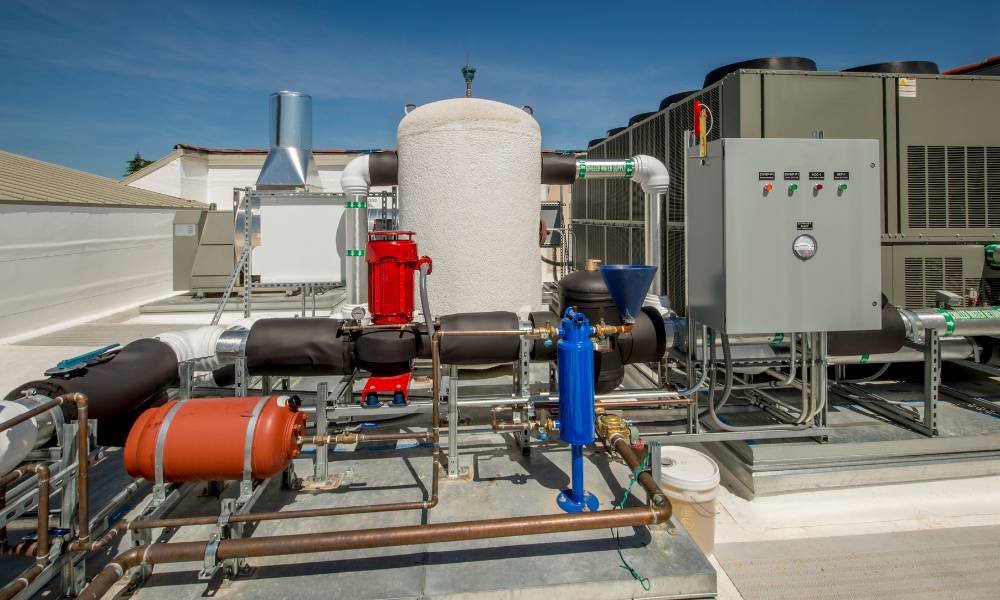
Even the best systems need regular care to perform their best. Here’s how to keep yours running smoothly:
- Replace Filters Regularly: Dirty filters reduce airflow and force the system to work harder. Aim to replace filters every 1–3 months.
- Schedule Seasonal Tune-Ups: Have your system serviced twice a year to address minor issues before they become major problems.
- Keep Ducts Clean: Clear ducts improve air quality and efficiency.
Proper maintenance extends the life of your system, saving you money on repairs and replacements.
5. Tips for Reducing Energy Costs
Choosing an efficient HVAC system is only part of the equation. Small changes can make a big difference in reducing your energy use:
- Use a programmable thermostat to adjust temperatures when you’re away.
- Seal windows and doors to prevent drafts.
- Install ceiling fans to improve airflow and reduce the load on your system.
These simple steps enhance comfort while keeping costs in check.
6. FAQs About HVAC Systems
How do I know which system size is right for my home?
A professional load calculation considers factors like square footage, insulation, and climate to determine the correct size for your system.
What’s the best system for a smaller home?
Ductless systems are a great choice for smaller homes. They’re compact, efficient, and easy to install.
How long does an HVAC system last?
Most systems last 10–15 years with proper maintenance. Geothermal systems often last longer due to their durable components.
7. Conclusio
Choosing the best HVAC system for your home doesn’t have to be complicated. By considering factors like size, energy efficiency, and your home’s unique needs, you can find a system that keeps you comfortable while saving money.
When in doubt, consult a professional. Their expertise ensures you get the right system and a flawless installation. With the right choice, you’ll enjoy year-round comfort, lower bills, and peace of mind for years to come.

